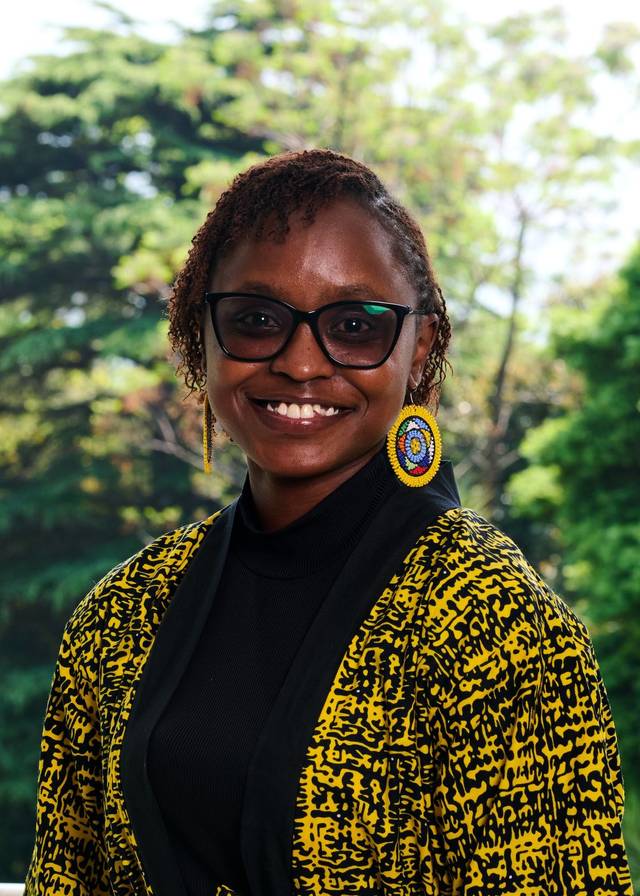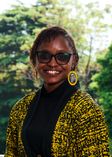
Scholar Stories
Keeping Children Safe Online
Hilda Maritim (Kenya & University of Cape Town,2025) shares her contribution to the realisation of the UN’s Sustainable Development Goals.
Did you know that, according to the African Union Empowerment policy, every half-second a new child goes online? This translates to about 175,000 children every day. Moreover, one out of three internet users is a child. In Africa, an estimated 40% of youth between the ages of 15 and 24 are online. These figures reveal the reality of children living in a digital space; their playground is online.
The internet helps promote inclusive societies and access to justice, which SDG16 (Peace, Justice, and Strong Institutions) was created to build. What keeps me up at night is how to ensure these spaces are accountable, that we end abuse and exploitation, and that we create awareness about the increasing cases of OCSEA (Online Child Sexual Exploitation and Abuse).
I am currently studying for a Master’s degree in Media Theory and Practice at the University of Cape Town, and my research helps me gather data that will influence policy change and help reduce online harm faced by children, ensuring that children in Africa are supported in the digital world. That they are growing in a space that works for them and not against them.
The United Nations’ Sustainable Development Goals were officially launched on January 1, 2016, following their adoption by world leaders in September 2015. This means the goals are now approximately 9 years old, with just 5 years remaining until 2030, the target year for achieving these goals. Since the inception of the SDGs, we have faced the COVID-19 pandemic, which dramatically shifted the world, among other factors. It is important to ask ourselves if we have all contributed our share toward helping the world become better and addressing its most pressing challenges—the fundamental purpose of the SDGs.
I also sit on the board of the Kenya Education Fund, a non-profit organization in Kenya that provides high school scholarships to needy and deserving students. Education is expensive; quality education is even more so. As a recipient of the Mandela Rhodes Scholarship, I am proud to contribute to SDG 4-Quality Education. Through my contributions to this cause, I help create inclusivity and access to better futures. It is only through this investment in education that we ignite purpose and affirm to many Kenyan children that their dreams are valid, regardless of their backgrounds.
My communication is my activism. I use it as a bridge between communities, policymakers, and change makers. Working toward the SDGs gives me purpose and guides me toward the aspirations of the communities I mentor, serve, and represent. By amplifying stories, I shift narratives and build collective responsibility, because this is not one person's job. 2030 is around the corner, and the choices and actions we all make today will determine whether we achieve these goals.
I have always considered myself a storyteller, which is why communicating issues comes naturally to me. Some call me an activist, but I'm simply telling things as they are and as they should be said. In many ways, my storytelling is my activism.
“Every generation must recognize and embrace the task it is peculiarly designed by history and by providence to perform.” - Chinua Achebe. There was a country.







